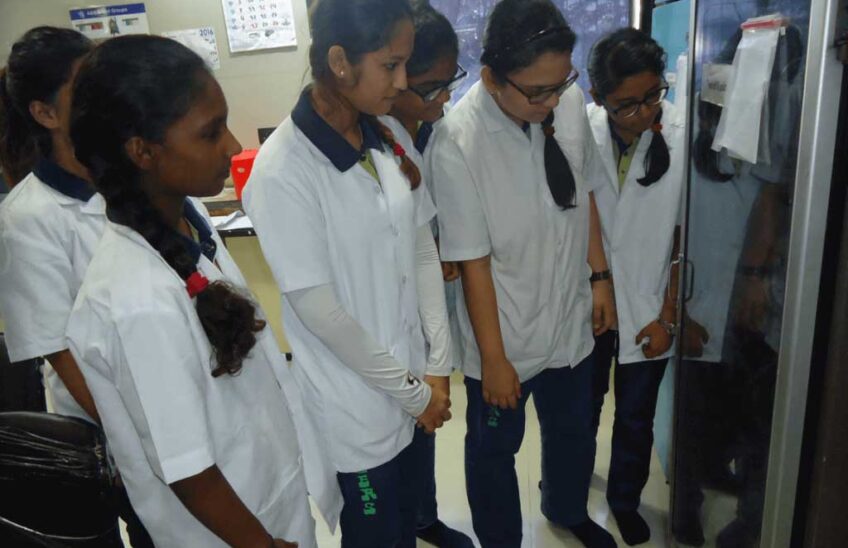
What is CBSE board?
The Central Board of Secondary Education is the government of India’s national Board of secondary education for both public and private schools. The Board, which was created in 1929 by a legislative resolution, was, in fact, a risky experiment in interstate integration and cooperation in secondary education. The CBSE is associated with more than 27,000 schools in India and 240 schools in 28 other countries. The NCERT curriculum is utilized by all CBSE-affiliated institutions, particularly in grades 9 through 12. Nidhi Chibber, an IAS, is the CBSE’s current chairwoman.
CBSE is linked with a number of schools in India as well as abroad. The board administers all of the country’s main exams, including the AIPMT and NEET.
There are 1,29,000 schools affiliated with CBSE throughout the country.
The procedure for the CBSE board examination is as follows:
- The candidate must fill out the online application form for CBSE
- After getting a confirmation email, the candidate should pay the examination fee
- The candidate needs to upload their photo and signature on the photo-signing page
- After completing all these steps, the candidate can take a printout of their application form
- The candidate has to carry this application form with them at all times during the examination
Role of CBSE
- CBSE’s main role is to provide a solid foundation for its pupils and a stress-free atmosphere in which they can learn and thrive.
- Its goal is to provide them with a high-quality education so that they can contribute their best to society as a whole.
- It takes a holistic approach to education, with students at the center of attention.
- The CBSE periodically assesses and evaluates the quality of its academic activities.
- CBSE is always coming up with new ways to deliver education and attain academic achievement while taking into account the psychological requirements of students.
- It encourages schools to keep track of their pupils’ progress in a friendly manner, with teachers serving as guides and mentors.
Objectives of CBSE board
The Central Board of Secondary Education was established to accomplish a number of connected goals. The following are the roles of CBSE:
(1) To establish examination requirements and hold open tests at the conclusion of classes X and XII.
(2) To present certificates of completion to graduates of the linked schools.
(3) To satisfy the academic obligations of students whose parents had transferrable employment.
(4) To establish and revise the exam preparation curricula.
(5) To affiliate institutions in order to assess and improve the nation’s academic standards.
Advantages of CBSE board
- Recognition by the Indian government: The Indian government recognizes the CBSE, a national-level board of education. This indicates that the curricula for all grade levels are organized by the guidelines established by the Indian government.
- Simple study method: The CBSE uses a systematic method in which pupils are only permitted to take one exam per subject. Children are freed from the unneeded strain of exams. As a result, we are allowing them to develop an interest in the topic.
- Syllabus structure: The CBSE curriculum is created to help students prepare for various admission exams, including the IIT-JEE and AIIMS. Additionally, across all subjects, CBSE adheres to the standards set forth by the National Council of Educational Research and Training (NCERT).
- It is helpful for relocating because many schools in India are linked with the CBSE, making it relatively simple for parents to move locations and enroll their kids in a CBSE board school in the event of job transfers.
- Permits students to take tests privately: Regular (students enrolled in the board-affiliated schools) and private students are both permitted to take exams through CBSE. Other boards only permit ordinary students to enroll in their affiliated schools.
- Equal emphasis is placed on the Hindi and English languages by CBSE, which offers educational materials in both languages. The test patterns and evaluation processes used by the CBSE board in Surat are progressing toward international standards. Children have the opportunity to study abroad through the numerous schools worldwide that are connected to the CBSE board.
CBSE vs GSEB
- The Central Board of Secondary Education is referred to as CBSE. It was founded in 1989 and is a statutory organization under the Ministry of Human Resource Development, Government of India.
- GSEB stands for Gujarat State Board of Secondary and Higher Secondary Education. It was founded in 1973 and is a statutory body under the Department of Education, Government of Gujarat.
- The CBSE syllabus is more broad-based than GSEB’s. The CBSE syllabus has many subjects like Physics, Chemistry, Mathematics, Biology, Computer Science, etc. In contrast, GSEB only has Physics, Chemistry, and Mathematics as its core subjects, with other branches like Economics and Business Studies being optional subjects to study from class 9 onwards.
- CBSE schools follow the curriculum and rules that apply to all CBSE schools in India. Instead, each GSEB school majorly (schools in surat) adheres to the guidelines and policies established by the Gujarat government. Every CBSE school in India adheres to the same curriculum and educational framework.
Frequently Asked Questions (FAQ’s)
Q. What are the benefits of the CBSE board?
A. The CBSE board is a way for students to learn more about the various careers and opportunities available to them in the field of education. It provides an insight into the various aspects of teaching, learning, and curriculum that students can explore.
Q. What is the Specialty of CBSE?
A. The educational framework of CBSE enables you to study rigorously while also honing your talents. The CBSE syllabus is simpler than that of other boards since it adheres to a concise format. It offers the fundamental and all-encompassing knowledge necessary for a youngster to advance in their academic studies.
Q. Is the GSEB Board using NCERT books?
A. Yes, The GSHSEB uses National Council of Educational Research and Training (NCERT) textbooks for 9th to 12th standards for three subjects: mathematics, science, and English.
Q. What do CBSE board teachers do?
A. CBSE faculty have to teach students from class 5th to 10th. They have to teach students on a wide range of topics such as Science, Math, Humanities and Social Studies. They also have to make sure that the students understand the curriculum and are able to apply it in their life.

